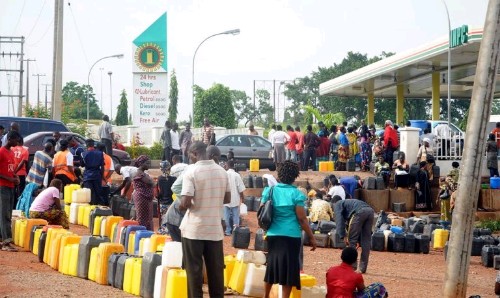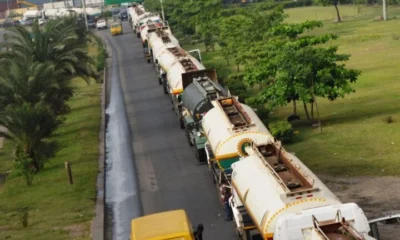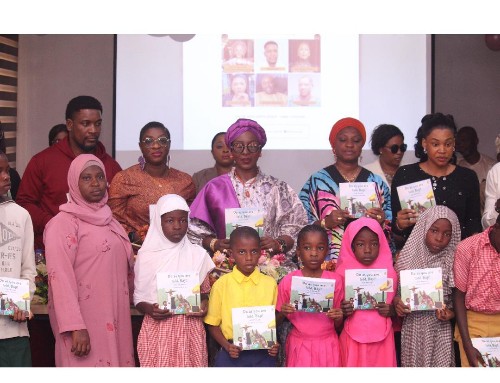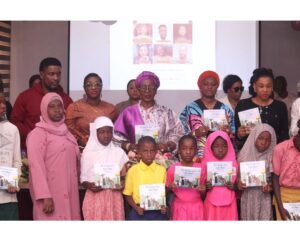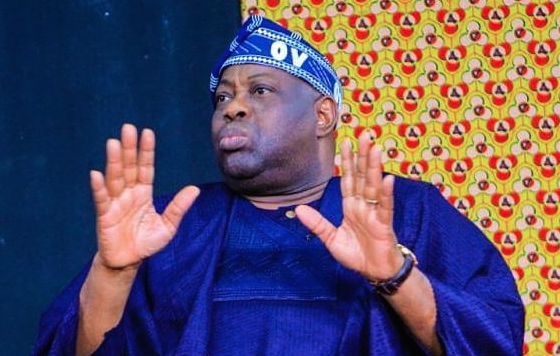A severe fuel shortage has hit several states in Nigeria, including Lagos, Ogun, Abuja, and Niger. This shortage has resulted in long queues at fuel stations, causing inconvenience to motorists and commuters.
The situation has also led to a surge in black market activities, with petrol being sold at exorbitant prices of up to N1,500 per liter.
According to the Nigerian National Petroleum Company Limited (NNPC), the shortage is attributed to a disruption in the discharge operations of two vessels.
This disruption has led to a tightness in fuel supply and distribution, causing the current scarcity.
The NNPC has assured that it is working to resolve the issue and restore normal fuel supply and distribution.
The company has also warned against panic buying and hoarding of fuel, stating that it has sufficient stock to meet the country’s demand.
As of now, the fuel scarcity persists, with long queues still visible at fuel stations in various parts of the country.
The NNPC has not provided a specific timeline for when the situation will be resolved, leaving motorists and commuters to bear the brunt of the shortage.
“The NNPC Ltd wishes to state that the tightness in fuel supply and distribution witnessed in some parts of Lagos and the FCT is as a result of a hitch in the discharge operations of a couple of vessels,” the NNPC Chief Corporate Communications Officer, Olufemi Soneye, said.
The company added that it was “working round the clock with all stakeholders to resolve the situation and restore normalcy in the operations.”
However, despite the assurance by the NNPC, the situation worsened as checks by our correspondents nationwide on Sunday showed that there were long queues at several filling stations across major cities.
It was gathered that there was no loading of trucks in the Apapa depots as of Sunday.
A depot operator, who did not want his name in print, told our correspondent that there was no fuel in almost all the depots on Sunday after the little available was supplied on Saturday.
The source confirmed that the depots are dry, saying “supply gets late thereby affecting product load out.”
It was observed on Sunday in Abuja, the capital city that while the few filling stations that dispensed the product sold it at between N660/litre and N800/litre, black marketers took advantage of the scarcity to hike the price to about N1,200/litre, depending on the area of purchase.
This came as oil marketers revealed that they were also queuing up to load petrol, adding that most depots lacked stock to sell.
“We, marketers, too are surprised that we couldn’t get fuel as we used to get at depots. We were worried too; we didn’t know the cause until the NNPC came out with a release on Saturday. Let’s just believe what the NNPC said, that they would arrest the situation,” the National Vice President of the Independent Petroleum Marketers Association of Nigeria, Hammed Fashola said.
“I believe that within this week, everything will be normalised by the time they push products to the depots for marketers to pick from. Ours is to pick from the depots, take it into our stations, and dispense to the public. But for now, most of the depots are dry. The implication of that is that the stations will be dry too. Most of our members have run out of stock. That is the cause of the queues we are experiencing now,” Fashola added.
He noted that marketers were still buying PMS “at a price that is above N700/litre from the private depots.”
“We are not yet getting direct supply from the NNPC as we are supposed to. What we are getting is so small compared to our population. That is why we are forced to go to the third parties, the private depot owners, and they are not helping matters with the kind of price they are putting out there.
“That is why independent marketers sell around N800 or so. Until we address this issue of direct supply, there will be issues. We keep shouting to the NNPC to look at that area properly because something is fundamentally wrong with our distribution channel and until they correct that, we will continue to have this issue of fuel scarcity.”
On his part, the Executive Secretary of the Major Energies Marketers Association of Nigeria, Clement Isong, also confirmed that there had been low stock but could not tell when the situation would improve.
“The problem is that the stock is low because there have been some challenges in bringing the product into the country from the vessels. We are all queuing up for products, everybody is looking for the product from the NNPC. Only the NNPC knows when normalcy will be restored. It is the sole supplier,” he stated.
The spokesperson for the NNPC, Olufemi Soneye, did not respond to inquiries on Sunday on when the fuel supply situation would improve up till when this report was filed.
- N1,500/Litre In Ogun, Lagos
Our correspondents who visited parts of Lagos and Ogun states on Sunday reported that many fuel stations did not open for business while the handful that opened had long queues of vehicles and people buying in jerrycans. Black marketers had a field day selling to impatient motorists at between N1,200 and N1,500 per litre, depending on the location.
A bus driver, Elijah Sunday, who spoke to one of our correspondents at the Ketu motor garage in Lagos, lamented the struggle to get PMS.
“We have been finding it hard to get fuel for the past couple of days and it’s expensive, so, we had to increase the rates,” he said.
A minibus driver plying the Eko Hotel-CMS route in Lagos insisted on N300 instead of N200, citing the fuel scarcity.
Fuel queues were observed at PM Petroleum at Cele Bus Stop along the Oshodi-Apapa Expressway. At the North West filling station close to CharlyBoy Bus Stop at Gbagada, Lagos and the NNPC station at Ogudu, there was a long line of vehicles.
At Petrocam, a filling station in Ajao Estate, Lagos fuel sold for N780 per litre.
Report has it that there was a long queue at the NNPC station along the Cele Expressway, where the pump price was set at N568 per litre.
It was gathered on Sunday that a litre of PMS was sold at N1,200 in Ipokia, a border community in Ogun State.
Similar scenarios also played out in some residential areas in Abuja where black marketers sold their fuel at between N1,000/litre and N1,200/litre.
Residents of Idiroko, Ajegunle, Maun, Ijofin, Agosasa, Madoga and other areas in the Ipokia Local Government in Ogun State said they now patronise black marketers, following the ban on fuel supply in border areas.
“You know we have about four filling stations servicing the entire local government area because we are in the border areas. They sell at N870/litre now while black marketers sell at N1,200/litre. That is our punishment for living at the border,” a resident, Sam Adegoke, stated.
Many of the filling stations in the Ogun State capital didn’t sell the product, and some who did, exploited desperate buyers, who paid as much as N1,000 before they had the product sold to them.
- Similar Case In South-South
In Benin City, the Edo State capital, motorists queued for long hours to purchase fuel at the NNPC mega station on Sapele Road and NIPCO in the Jattu area in Auchi.
The long queues at the NNPC station are a common occurrence as the product is sold for N591 per litre, the cheapest in the state.
In other stations in Benin, a litre of PMS was sold for between N750 and N800.
In Gombe, fuel sold between N850 and N1,000 across major stations, while black marketers made brisk business, selling for N1,250 per litre as frustrated motorists resorted to buying the product from them following the scarcity.
According to The Punch, a motorcyclist, Usman Abubakar said “You may think that the amount sold by the roadside people (black marketers) is expensive until you are in a fix and you can’t access a filling station with petrol, then you will be left with no option but to patronise them despite the ridiculous amount,”
Motorists in Jos, the Plateau State capital, expressed concern over the persistent scarcity and high cost of the commodity, saying that the situation had worsened the economic hardship.
Black marketers in parts of Jos sold for N1,300/litre.
A motorist, Philip Gyang, said he had been in the long queue at the NNPC filling station along Dogon Karfi Road for over four hours but couldn’t get the product to buy.
“At the black market I paid N1,300 per litre before joining the queue at the NNPC outlet, where I eventually couldn’t get to buy,” Gyang lamented.
A Jos resident, Margaret John, said the scarcity had further increased the cost of living in the state.
“Can you imagine that I paid N500 from Polo Roundabout to Anguldi, when I was going to the church today (Sunday). When I was returning home, the driver insisted that I paid N700, it’s not funny. People are already complaining about the harsh economic conditions, now the fuel scarcity and high cost are worsening the situation.”
A car owner in Minna, the Niger State capital, said he had abandoned his car at home over fuel scarcity and skyrocketing prices.
“Yes, I have a car but I am not using it now. How many litres of fuel will I buy to be able to come to work? But with two or three litres of fuel, I can come to work on my motorcycle. It is not easy but it is cheaper. This government must act fast, Nigerians are suffering,” a state civil servant, who identified himself simply as Mutum, said.
Also, queues resurfaced in Katsina and Taraba states.
It was gathered that Katsina and Jalingo, the capital of Taraba, witnessed long queues in various parts of both cities on Sunday.
A motorist, Mallam Abdulrazakk, said he spent over five hours at the Abukur NNPC mega station, located on the outskirts of Katsina metropolis, without success.
“I was here before 8 am and now it is 1:40 pm and still in the queue, only Allah knows when I will be given fuel today (Sunday). I’m waiting.”
In parts of Yola, the Adamawa State capital, black marketers sold PMS for between N1,000 and N1,200.
“At the black market we buy between N1,000 and N1,200 per litre, so, we need to jack up the fare to enable us to stay in business,” a commercial bus driver said.
Credit: The Punch

 BIG STORY4 days ago
BIG STORY4 days ago
 BIG STORY2 days ago
BIG STORY2 days ago
 BIG STORY4 days ago
BIG STORY4 days ago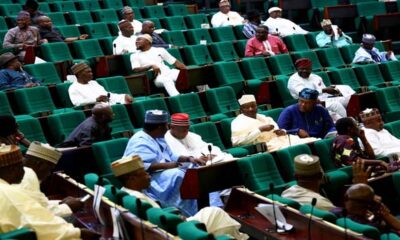
 BIG STORY4 days ago
BIG STORY4 days ago
 BIG STORY3 days ago
BIG STORY3 days ago
 BIG STORY15 hours ago
BIG STORY15 hours ago
 BIG STORY15 hours ago
BIG STORY15 hours ago
 BIG STORY14 hours ago
BIG STORY14 hours ago




